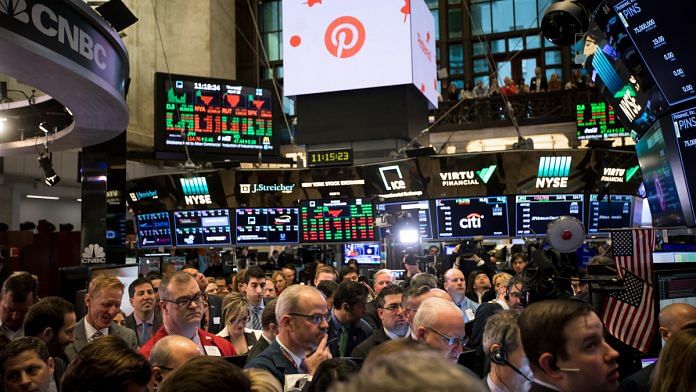With large swaths of the country turning to social distancing to reduce the spread of the coronavirus, economic activity has taken a big hit. This has led some, including President Donald Trump, to suggest that the “the cure” might “be worse than the problem” and to argue for easing distancing measures in a couple of weeks to get the economy back up and running as soon as possible. A new paper suggests that idea has it precisely backward.
The study, by economists Sergio Correia, Stephan Luck and Emil Verner looks at the economic impact of the 1918 Spanish flu pandemic in the U.S. The authors combined data on mortality and economic variables from the period with evidence on local implementation of so-called non-pharmaceutical interventions like social distancing. They conclude that the earlier, more forcefully and longer cities responded, the better their economic recovery.
That’s not to say that the flu pandemic didn’t cause an economic strain: the authors found that the areas hit hardest saw real declines in manufacturing employment and output, as well as a persistent reduction in bank assets — probably because of losses on loans amid bankruptcies. They also found a decline in auto registrations, which they say suggests a decline in demand for consumer durables.
Also read: Why the world needs Apple’s annual new iPhone cycle
That said, the cities that implemented aggressive social distancing and shutdowns to contain the virus came out looking better. Implementing these policies eight days earlier, or maintaining them for 46 days longer were associated with 4% and 6% higher post-pandemic manufacturing employment, respectively. The gains for output were similar. Likewise, faster and longer-lasting distancing measures were associated with higher post-pandemic banking activity.
We might be concerned that cities that took more stringent measures precisely because they foresaw greater economic harm — which would make the relationship between those measures and economic outcomes mechanical and meaningless. But the authors argue — consistent with epidemiological evidence — that especially during the second wave of the flu pandemic, local policy reactions were in large part driven by geography: The virus spread across the country from east to west, so cities closer to the West Coast could learn from those in the east.
Also, to be clear, the finding that cities that practiced stricter social distancing did better post-pandemic doesn’t mean those places didn’t suffer economically — they did, but on balance, the distancing measures appear to have reduced the pandemic’s economic toll.
Unfortunately, the authors don’t have specific data to figure out why, precisely, this happened. And of course, the economy in the early 1900s was much less complicated and interconnected that it is today, so we have to be careful not to extrapolate too much from historical evidence. But this is at least consistent with the arguments my Bloomberg Opinion colleagues Noah Smith and Michael Strain have already put forward for why easing distancing measures too early would be potentially devastating for the economy.
It’s also worth remembering that the distancing measures during the flu pandemic saved lives, too; that’s already been well known for years. What we’ve learned now is that the net economic impact of those measures appears to have been positive, as well.
So the lives-versus-the-economy trade-off some have been trumpeting may actually be a false choice. If anything, it looks like the things we should be doing to save lives are also what we should be doing to save the economy.-Bloomberg
Also read: Rupee rises 81 paise against US dollar after RBI announces measures to support economy




Absolute nonsense!